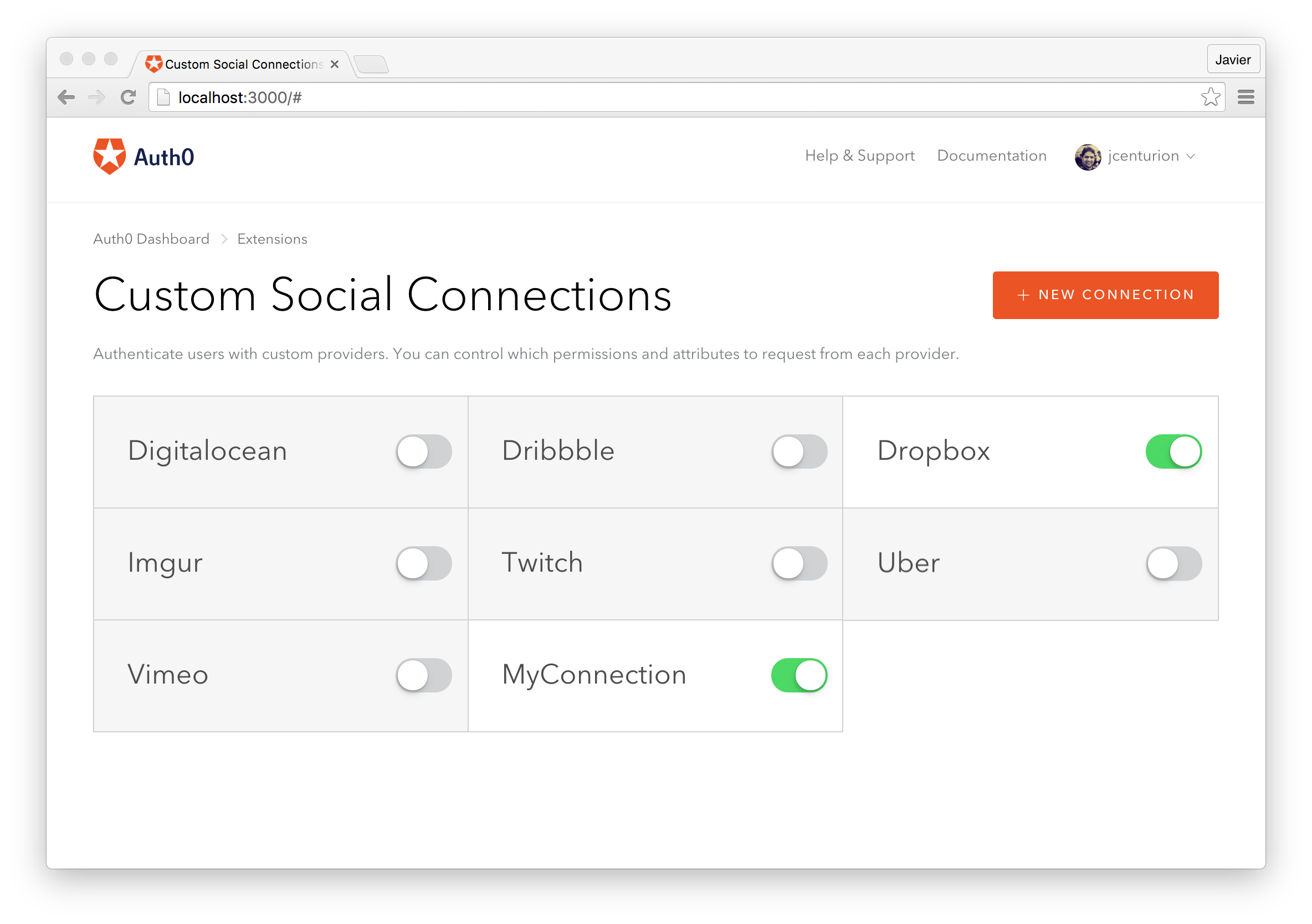This application gives Auth0 customers the possibility to manage custom social connections in an easy way. The application allows the user to:
- List custom connections
- Create a new custom connection
- Configure a custom connection based on existing templates
- Share custom connection
- Try a custom connection
To run it locally, you'll need the following:
- Install NPM packages -
npm install
$ npm start -- --param AUTH0_DOMAIN=auth0.auth0.com
$ open http://localhost:3000
To deploy this to your webtask sandbox, you'll need to run:
$ NODE_ENV=production npm run build
$ wt create dist/custom-social-connections.js --name custom-social-connections --no-parse --no-merge
Note: Click here for more information about how to set up webtasks.
If you have found a bug or if you have a feature request, please report them at this repository issues section. Please do not report security vulnerabilities on the public GitHub issue tracker. The Responsible Disclosure Program details the procedure for disclosing security issues.
Auth0 helps you to:
- Add authentication with multiple authentication sources, either social like Google, Facebook, Microsoft Account, LinkedIn, GitHub, Twitter, Box, Salesforce, among others, or enterprise identity systems like Windows Azure AD, Google Apps, Active Directory, ADFS or any SAML Identity Provider.
- Add authentication through more traditional username/password databases.
- Add support for linking different user accounts with the same user.
- Support for generating signed Json Web Tokens to call your APIs and flow the user identity securely.
- Analytics of how, when and where users are logging in.
- Pull data from other sources and add it to the user profile, through JavaScript rules.
- Go to Auth0 and click Sign Up.
- Use Google, GitHub or Microsoft Account to login.
This project is licensed under the MIT license. See the LICENSE file for more info.





